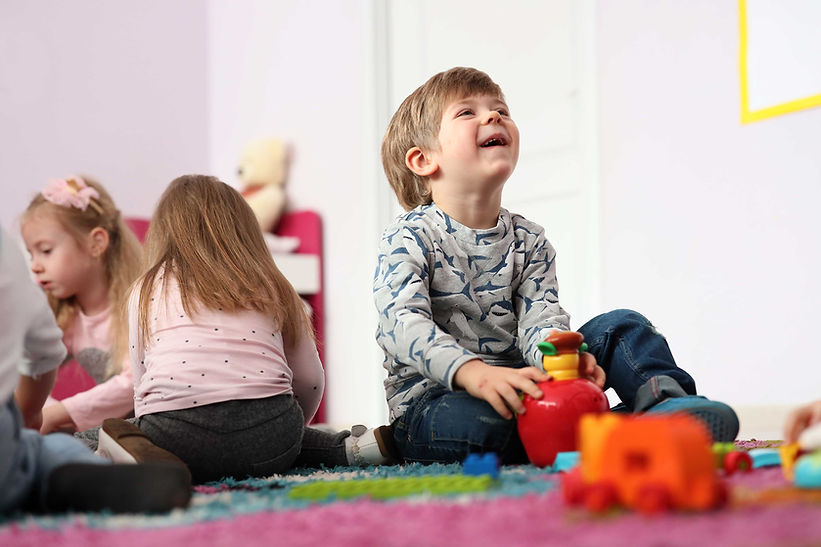
Working with Families and Engaging with Caregivers
Collaboration with families is critical to an effective education because it provides educators with vital insights about children's upbringing. Strong collaboration between families and educators dramatically increases a child's chances of success. This collaborative partnership helps to develop a thorough grasp of the child's interests, preferences, strengths, weaknesses, and behaviour. In this collaboration, clear and open communication is critical because it aligns the efforts of families and educators toward the common goal of the child's well-being and growth. When everyone involved wants the best for the child, good communication becomes essential. For example, if a child is having difficulties at home, parents can contact educators. This allows educators to provide more support, closely observe the child, participate in meaningful conversations, or arrange activities based on the child's interests in order to lift the child's spirits. Educators, on the other hand, can share observations and insights with parents, fostering a collaborative approach that promotes the child's holistic development.
Engaging with caregivers is important for educators because it provides essential insights about a child's needs and areas that may require extra attention, such as certain subjects or emotional well-being. Given this information, educators can provide individualized support, addressing particular obstacles or concerns. It is critical to establish positive relationships with caregivers. Caregivers frequently experience parenting issues, and fostering a comfortable setting facilitates open conversation. Recognizing the obstacles that caregivers may face, educators may create an environment in which requesting help is encouraged and supported. This collaborative approach makes caregivers feel less alienated and more likely to seek help when it is required, allowing educators to provide useful guidance and resources. Communication between parents, caregivers, and educators promotes a shared understanding of the child's needs and the conditions of their home learning environment. This joint effort guarantees that the child's development and learning are approached holistically and supportively.

Views of a Child
Children are naturally curious, competent, and full of promise. When they play, connect with others, and participate in activities relevant to their interests, they learn best. Given the variety of learning styles, educators play an important role in connecting with each child, identifying their specific requirements, and personalizing techniques to enhance learning. Building confidence begins with providing a safe and pleasant atmosphere for children. Children who are confident are more likely to take risks, work with classmates, and embrace new opportunities. It is critical in the early childhood setting that each child feels safe and accepted regardless of identity or aspirations. Educators are critical allies in this journey. When children face difficulties or require support, educators should provide a trusting and safe environment in which they can express themselves freely. This lays the groundwork for strong, good interactions, creating an environment in which children may successfully navigate their early learning experiences.
Roles of Families, Educator, and Environment
Families
Families are capable, inquisitive, and knowledgeable. Families want their children to succeed and are prepared to support them. Families bring a wide range of social, cultural, and linguistic perspectives. Each family is unique, with various cultural and religious backgrounds. They each instill their own set of morals, beliefs, and values in their children. The family environment influences a child's development. Families know their children the best; they know their child's strengths and weaknesses, as well as his or her likes and dislikes. They are also aware of the child's motivations, which can help educators support their development and learning.
Educators
Educators are inquisitive, capable, and have a wide range of experience. Educators should create engaging environments and experiences for children to help them learn and grow. All educators have different teaching styles, but ultimately, they focus on the children's learning and well-being. Every educator brings to the classroom a different set of knowledge and skills influenced by their backgrounds, cultures, languages, likes and dislikes, strengths and weaknesses, and personal world experiences. Educators must strive to be positive role models so children can learn from them. Most importantly, educators must be recognized for all their work and effort to help these children succeed.



Environment
The environment plays a vital role in the children's play-based activities and exploration. The environment encourages children to pursue their interests, both outdoor and indoor play a role in children's exploration. Materials and furnishings, as well as the general design of the space and the organization of time, all significantly influence children's level of engagement and the possibilities for in-depth exploration and learning for children with special needs. Children play in various environments, and educators must focus on what they can do to improve their children's learning and success.